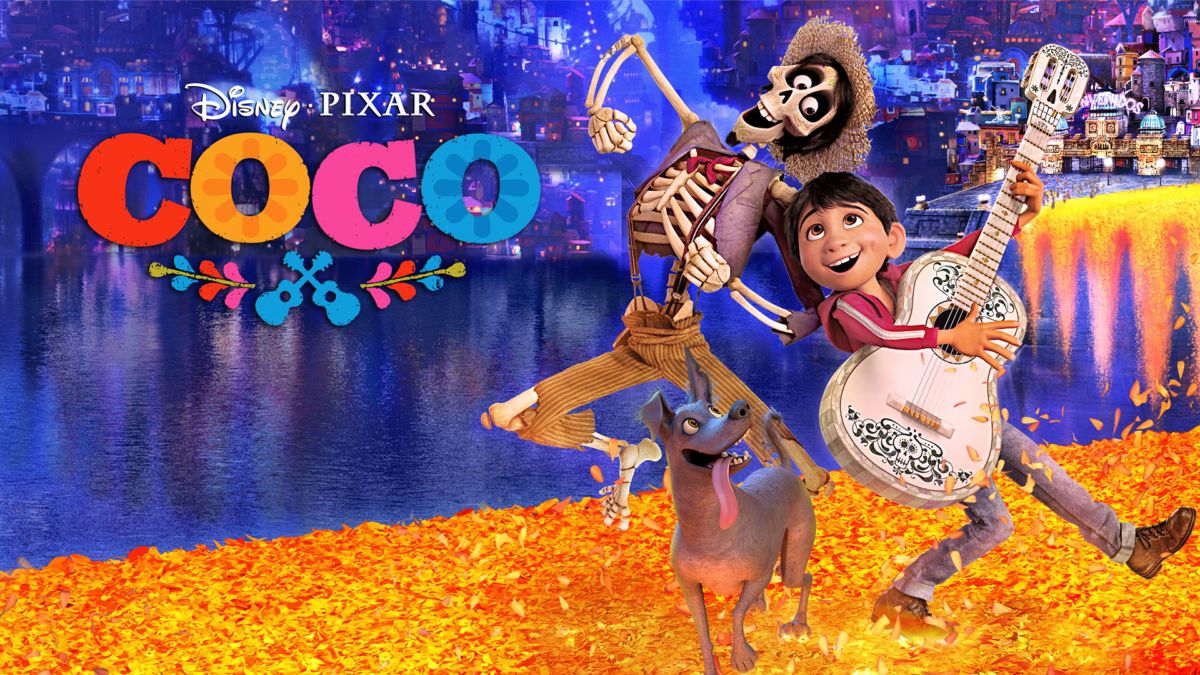“Coco” is a 2017 Disney-Pixar animated film that tells the story of Miguel, a young boy who dreams of becoming a musician despite his family’s longstanding ban on music. On Dia de los Muertos (the Day of the Dead), Miguel finds himself transported to the Land of the Dead, where he meets his deceased ancestors and uncovers family secrets that will change his life forever.
The movie explores several themes, including the importance of family, the power of music, and the significance of honoring one’s ancestors. However, one of the most significant themes in “Coco” is the role that family plays in shaping our identities, our dreams, and our relationships. Through Miguel’s journey, the movie teaches us about the strength of family connections, the value of knowing our family history, and the importance of cherishing the people who have come before us.
Family is a significant theme in “Coco” because it is central to the movie’s plot and message. From the very beginning, we learn that Miguel’s family has a complicated history with music, and this tension sets the stage for the rest of the movie’s exploration of family dynamics.
As Miguel travels to the Land of the Dead and learns about his ancestors, he discovers that his family’s ban on music is rooted in a deep-seated fear of loss and a desire to protect each other from the pain of that loss. Through his interactions with his deceased relatives, Miguel comes to understand that family is not just about blood ties, but about the love and connections that bind us to one another.
The movie also emphasizes the importance of family in shaping our identities and influencing our dreams. Miguel’s passion for music is not just a personal interest, but a reflection of his family history and cultural heritage. By exploring his family’s past, Miguel is able to understand himself better and find a sense of purpose in his music.
Overall, family is a significant theme in “Coco” because it is essential to the movie’s exploration of identity, history, and love. Through its portrayal of family dynamics, the movie encourages us to appreciate the people we are connected to and honor the sacrifices they have made for us.
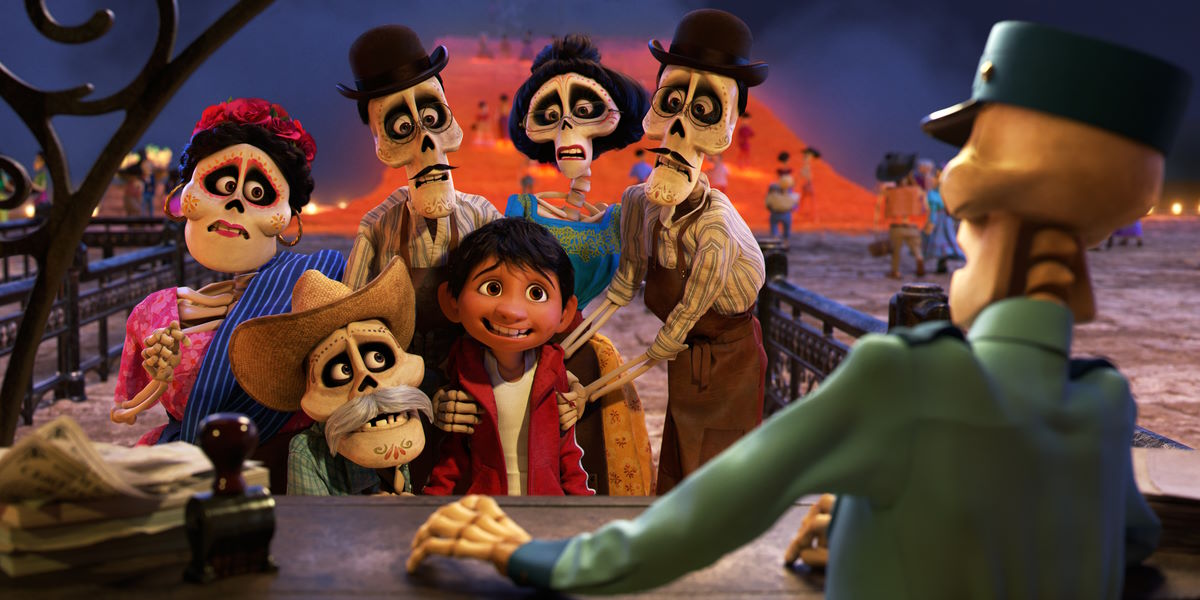
The Importance of Ancestry
The movie “Coco” places a significant focus on ancestry and its connection to family. Throughout the movie, we see how knowledge of one’s family history can shape one’s identity and relationships.
Miguel’s journey to the Land of the Dead is driven by his desire to uncover the truth about his family’s past and understand why they have a ban on music. Through his interactions with his deceased relatives, he learns about the sacrifices they made for their family and how their choices continue to influence the present.
The movie’s emphasis on ancestry also highlights the importance of honoring and remembering our ancestors. On Dia de los Muertos, families create ofrendas (altars) to pay tribute to their loved ones who have passed away. These ofrendas serve as a way to keep the memory of our ancestors alive and to acknowledge the impact they have had on our lives.
Overall, the movie’s focus on ancestry underscores the idea that our family history is an essential part of who we are. By exploring our ancestry and learning about the sacrifices and traditions of our ancestors, we can gain a deeper understanding of ourselves and our place in the world. This knowledge can also help us forge stronger connections with our family and preserve our cultural heritage for future generations.
Miguel’s journey to the Land of the Dead in “Coco” highlights the significance of knowing one’s family history. Throughout his adventure, Miguel learns about his ancestors and discovers the truth about his family’s past.
At the beginning of the movie, Miguel is passionate about music but does not understand why his family forbids it. However, his journey to the Land of the Dead teaches him that his family’s ban on music is rooted in a long-held fear of losing loved ones. This knowledge not only helps Miguel understand his family’s history but also gives him a deeper appreciation for the importance of family bonds.
Moreover, Miguel’s interactions with his ancestors show him the power of familial connections across generations. He learns about the sacrifices and struggles of his ancestors, and he sees how their choices have had a lasting impact on his family. By gaining this knowledge, Miguel is able to understand his place in his family’s story and find a sense of belonging.
Overall, Miguel’s journey highlights the importance of knowing one’s family history. By exploring his ancestry, Miguel gains a deeper appreciation for his family’s past and present. His journey underscores the idea that our family history shapes who we are and that by understanding our past, we can better understand ourselves and our place in the world.
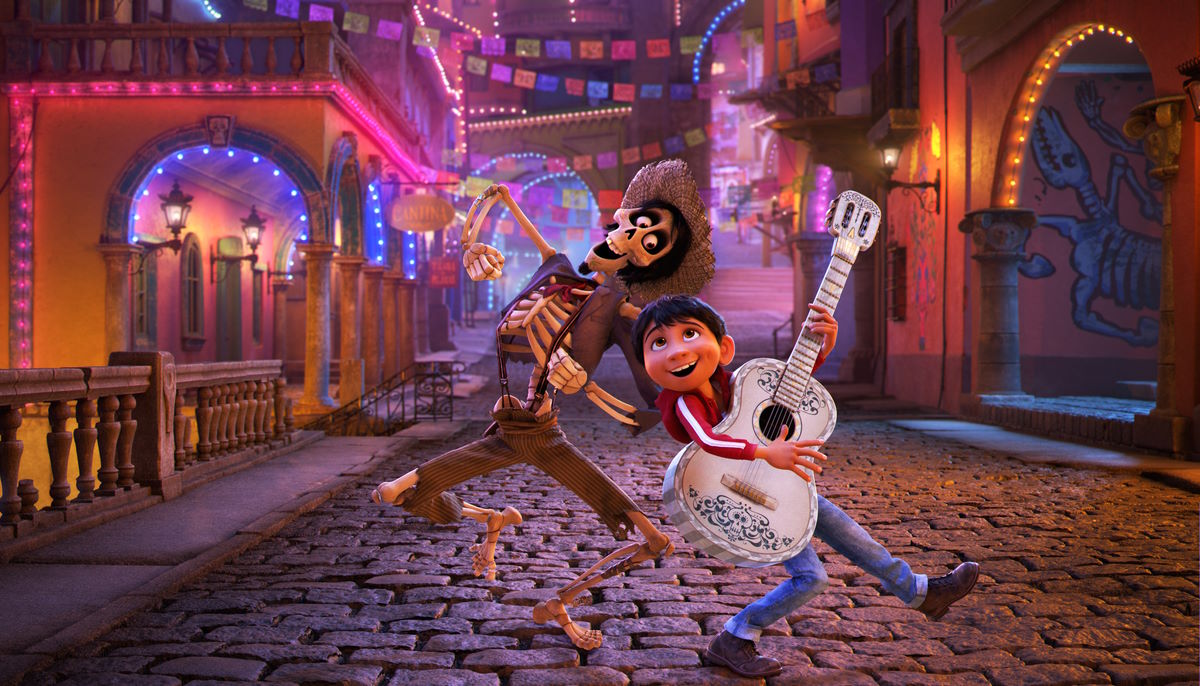
The Power of Family Connections
The movie “Coco” explores various family connections and relationships, which are central to the story. Some of these connections include:
- Miguel’s relationship with his great-grandmother Coco: Miguel has a special bond with his great-grandmother, who is the only living member of his family who remembers their ancestors. Coco is initially portrayed as a forgetful and elderly woman, but as the story progresses, we learn that she holds the key to unlocking Miguel’s family history.
- Hector’s connection to his daughter: Hector, one of the main characters in the movie, is a musician who died before he could see his daughter grow up. His longing to see his daughter again and be remembered by her is a central theme throughout the movie. As we learn more about Hector’s past, we see how his love for his daughter drove him to make difficult choices.
- Miguel’s relationship with his ancestors: As Miguel journeys to the Land of the Dead, he discovers the importance of family and the connections that exist between the living and the dead. Through his interactions with his ancestors, including his great-great-grandfather and Hector, he learns the true meaning of family and the importance of remembering those who came before us.
- The Rivera family’s relationship with music: Music is an important part of the Rivera family’s history and culture. However, Miguel’s desire to pursue music conflicts with his family’s strict ban on it, leading to tension and conflict. As the story unfolds, we see how music ultimately brings the family together and helps them heal.
Overall, the movie “Coco” portrays a range of family connections, from the bonds between living relatives to the relationships that transcend death. These connections underscore the importance of family, tradition, and remembering where we come from.
The family connections depicted in the movie “Coco” not only provide the basis for the storyline but also play a significant role in driving the plot and shaping the characters’ motivations. Here is a detailed analysis of how these connections drive the plot and shape the characters’ motivations:
- Miguel’s relationship with his great-grandmother Coco:
Miguel’s bond with his great-grandmother Coco drives the plot of the movie. He idolizes his late great-great-grandfather, Ernesto de la Cruz, but his family has banned music, which Ernesto was famous for. Miguel’s desire to pursue music and his curiosity about his family history lead him to the discovery of his connection with Ernesto, which propels the story forward. His connection with Coco, who is the only one in the family who can tell him about his ancestors, is what ultimately leads him to the Land of the Dead, where he meets his deceased relatives and discovers the truth about his family.
- Hector’s connection to his daughter:
Hector’s desire to reconnect with his daughter drives his motivation throughout the movie. He wants to be remembered by his daughter and fears that he will be forgotten. His connection with his daughter is what leads him to partner with Miguel, as he hopes to use Miguel’s musical talent to get his picture displayed on the ofrenda, a shrine where families place items in remembrance of their loved ones, to ensure that he is not forgotten. As Hector and Miguel team up, their relationship becomes more profound and drives the story to its conclusion.
- Miguel’s relationship with his ancestors:
Miguel’s relationship with his ancestors is critical to the movie’s plot and shapes his motivations. Miguel learns the importance of remembering the dead, and how the actions of the living can impact the dead’s afterlife. His interactions with his ancestors, including his great-great-grandfather and Hector, help him discover the truth about his family and motivate him to help Hector be remembered by his daughter.
- The Rivera family’s relationship with music:
The Rivera family’s relationship with music drives the plot of the movie and shapes the character’s motivations. Miguel’s love for music conflicts with his family’s strict ban on it, leading to tension and conflict. The family’s past history with music is revealed as the plot progresses, and the significance of music is a central theme throughout the movie. Ultimately, the power of music brings the family together and heals past wounds.
In conclusion, the family connections depicted in “Coco” not only provide an emotional depth to the characters but also drive the plot forward. The bonds between family members, whether living or dead, shape the characters’ motivations and influence their actions. The movie emphasizes the importance of family, tradition, and the power of remembering those who came before us, ultimately leading to a touching and heartwarming conclusion.
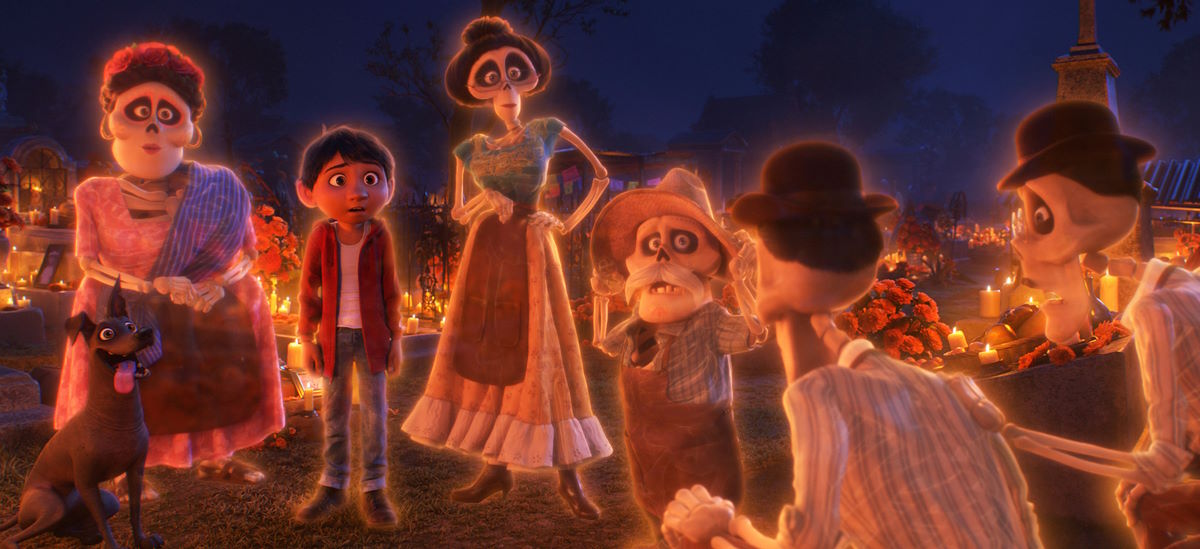
The Role of Family in Mexican Culture
Family is of paramount importance in Mexican culture. Mexican families are generally large and tightly knit, with several generations often living together or in close proximity. The family unit is seen as the cornerstone of Mexican society, and strong family ties are valued and celebrated in many aspects of Mexican culture.
One of the key elements of Mexican family culture is the concept of “familismo,” which refers to the prioritization of family relationships over individual needs or desires. This means that family members are expected to support and care for each other, no matter what. This includes both immediate and extended family members, with aunts, uncles, cousins, and grandparents often playing important roles in each other’s lives.
Another crucial aspect of Mexican family culture is the emphasis on respect for elders. In Mexican families, older generations are often given great deference and are expected to be treated with honor and respect. This includes caring for elderly family members, seeking their advice and guidance, and acknowledging their wisdom and experience.
Family is also central to many Mexican cultural traditions and celebrations. For example, the holiday of Dia de los Muertos, or Day of the Dead, is a time when families come together to remember and honor their ancestors who have passed away. This involves building ofrendas, or altars, to the deceased, which include photographs, candles, flowers, and other offerings.
Overall, family is a crucial element of Mexican culture, and the importance of family ties is woven into the fabric of daily life. From the prioritization of family relationships to the celebration of cultural traditions, the value placed on family in Mexican culture is a defining characteristic of this rich and vibrant culture.
The movie “Coco” is a celebration of Mexican culture, and it pays tribute to many traditions and values related to family that are central to Mexican life. Here is an examination of how the movie depicts and honors Mexican traditions and values related to family:
- Dia de los Muertos:
The holiday of Dia de los Muertos, or Day of the Dead, is a key element of Mexican culture, and “Coco” pays homage to this tradition by depicting its customs and celebrations in great detail. The movie shows the importance of building ofrendas, or altars, to honor deceased family members and the belief that the dead return to the world of the living for a brief time to be with their loved ones. The movie portrays the colorful and lively celebrations that take place during the holiday, such as parades, music, and food, and emphasizes the idea that death is a natural part of life, and that the memory of loved ones should be cherished and celebrated.
- Familismo:
The concept of familismo, or the prioritization of family relationships over individual needs, is central to Mexican culture, and “Coco” portrays this value throughout the movie. The importance of intergenerational relationships is highlighted, with the bond between Miguel and his great-grandmother Coco, as well as the family’s respect for their elders, serving as prominent examples of familismo in action. The movie also emphasizes the idea that family members support and care for each other, with Miguel’s family ultimately coming together to help him achieve his dream of pursuing music.
- The power of storytelling:
Storytelling is an essential element of Mexican culture, and “Coco” celebrates this tradition by showing the power of stories to connect generations and keep memories alive. The movie portrays how family stories and traditions are passed down from generation to generation, preserving family history and cultural values. The movie also highlights the importance of music as a way of conveying stories and emotions, which is a prominent element of Mexican culture.
- The role of food:
Food is another critical component of Mexican culture, and “Coco” portrays the importance of food in family life. The movie shows the preparation and sharing of traditional Mexican dishes, such as tamales and mole, and emphasizes how food brings people together and serves as a way of showing love and respect.
In conclusion, “Coco” beautifully depicts and honors many Mexican traditions and values related to family, including Dia de los Muertos, familismo, the power of storytelling, and the role of food. The movie celebrates the richness and depth of Mexican culture and highlights the importance of family in this vibrant and unique culture.
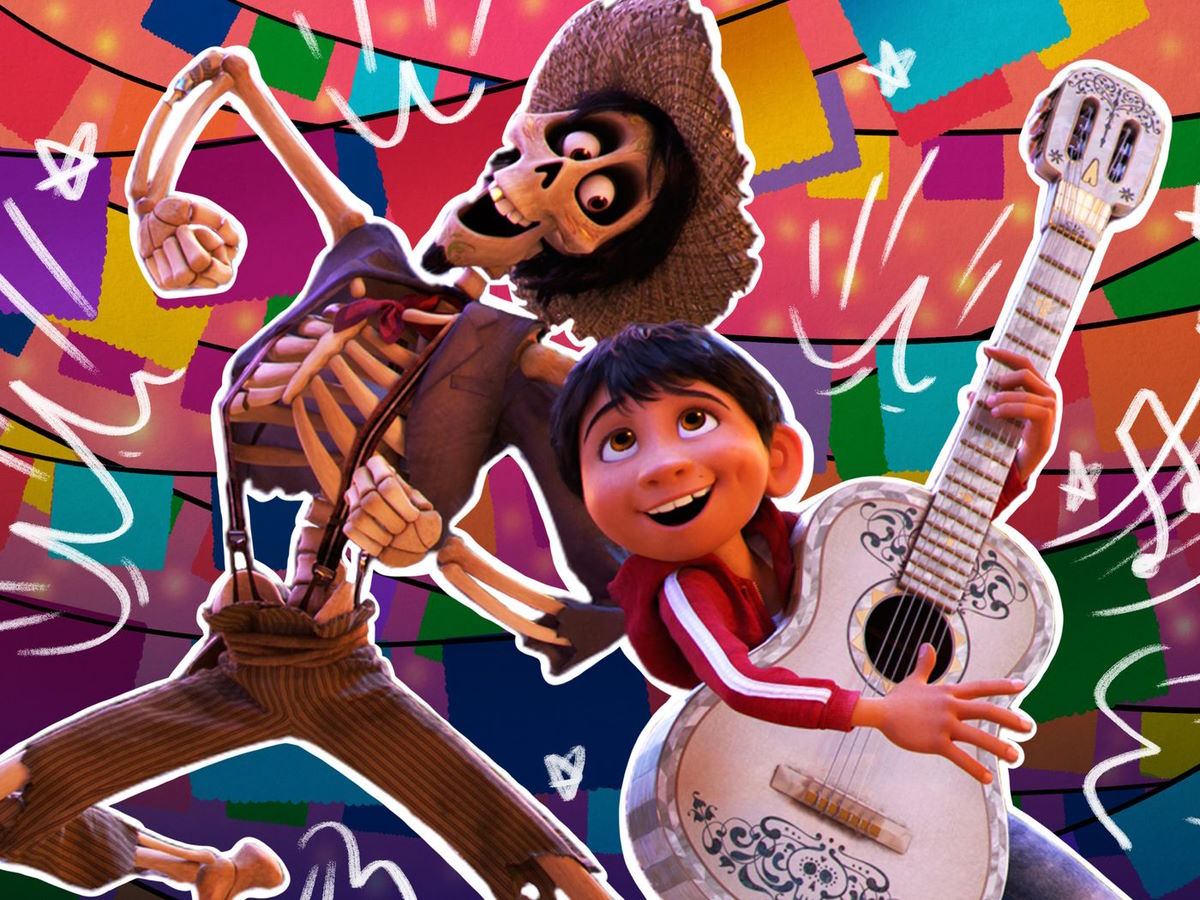
Conclusion
The importance of family is a central theme in the movie “Coco.” The movie portrays the strong bond between family members and the role that family plays in shaping the characters’ motivations and driving the plot forward. Here is a recap of the importance of family in “Coco”:
- Familismo: The movie emphasizes the concept of familismo, or the prioritization of family relationships over individual needs, which is a key element of Mexican culture. Miguel’s family comes together to support him, despite initial disagreements about his passion for music. The bond between Miguel and his great-grandmother Coco serves as a poignant example of the power of family connections.
- The importance of ancestors: The movie highlights the importance of remembering and honoring ancestors, which is a crucial aspect of Mexican culture. Miguel’s journey to the Land of the Dead is driven by his desire to connect with his deceased ancestors, particularly his great-grandfather, who he believes can help him pursue his passion for music.
- The power of storytelling: The movie portrays the role of storytelling in preserving family history and cultural values. Miguel’s grandmother, Mama Coco, is the keeper of family stories and traditions, and her memories ultimately help Miguel unlock the secrets of his family’s past.
- The role of music: Music is a powerful force in “Coco,” and it serves as a way of connecting family members and conveying emotions. Miguel’s passion for music ultimately brings his family together and helps him to connect with his ancestors.
Overall, family is an essential element of “Coco,” and the movie celebrates the richness and depth of Mexican culture through its portrayal of family connections and traditions. The movie highlights the importance of familial relationships, respect for ancestors, storytelling, and music in shaping the characters’ motivations and driving the plot forward.
The themes related to family in “Coco” are universal and can resonate with audiences of all ages and backgrounds. Here is an explanation of how the movie’s themes related to family can resonate with diverse audiences:
- Importance of familial relationships:
The movie emphasizes the importance of familial relationships, which is a theme that is relevant to people of all ages and backgrounds. Everyone has family members, and the movie’s portrayal of the strong bond between family members can resonate with audiences who have experienced the love and support of their own families.
- Connection to ancestors:
The movie highlights the importance of connecting with one’s ancestors, which is a theme that can resonate with audiences from a variety of cultural backgrounds. Many cultures around the world place a significant emphasis on honoring and remembering ancestors, and the movie’s portrayal of this tradition can connect with audiences who share this value.
- Power of storytelling:
The movie celebrates the power of storytelling, which is a theme that can resonate with audiences of all ages and backgrounds. Storytelling is a universal human activity, and the movie’s portrayal of how stories can connect generations and preserve family history can resonate with audiences who have their own family stories and traditions.
- Pursuing one’s passions:
The movie encourages pursuing one’s passions, which is a theme that can resonate with audiences of all ages and backgrounds. Everyone has dreams and aspirations, and the movie’s portrayal of Miguel’s passion for music and his pursuit of his dreams can inspire audiences to follow their own passions and goals.
Overall, the themes related to family in “Coco” are universal and can connect with audiences of all ages and backgrounds. The movie’s celebration of familial relationships, connection to ancestors, power of storytelling, and pursuit of one’s passions can resonate with diverse audiences and inspire them to connect with their own families and pursue their dreams.
In conclusion, “Coco” is a beautiful and heartwarming movie that celebrates the importance of family and the richness of Mexican culture. Through its themes related to familial relationships, connection to ancestors, power of storytelling, and pursuit of one’s passions, the movie can resonate with audiences of all ages and backgrounds.
As we reflect on the valuable life lessons from “Coco,” let’s continue to explore the vast world of movies and TV shows for more uplifting stories and valuable insights. By doing so, we can broaden our perspectives, gain new insights, and become better equipped to handle life’s challenges. Whether it’s through watching inspiring movies, reading inspiring books, or simply connecting with loved ones, let’s strive to keep the spirit of family and community alive in our daily lives. So let’s take the lessons from “Coco” to heart and continue to seek out positive and meaningful stories that can uplift and inspire us all.

